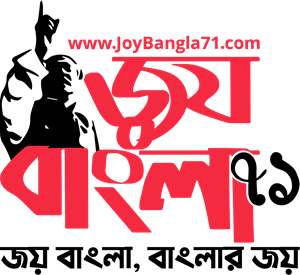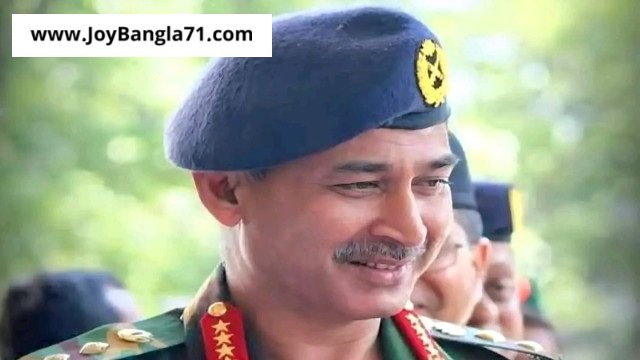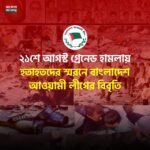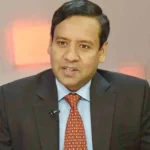বিএনপি ক্ষম তায় এলে—সম্ভাব্য চিত্র
নির্বাচন হলে প্রতিদ্বন্দ্বিতা বিএনপি-জামায়াত-ছাত্রশক্তির মধ্যে সীমাবদ্ধ থাকবে। জামায়াত সাংগঠনিকভাবে শক্তিশালী হলেও পুরোনো ইশতেহারের কারণে জনগ্রাহ্যতা কিছুটা কম। তবে ১৯৯১-এর মতো দুর্ঘটনা ঘটানোর মতো শক্তি তারা এখনও অর্জন করেনি। তারা বেশ কিছু আসন পেতে পারে বিএনপি-বিরোধী তরঙ্গ ভর করে। তবে সেগুলো ন্যাশনাল সিটিজেন পার্টির সঙ্গে ভাগাভাগি করতে হবে। অন্যদিকে ন্যাশনাল সিটিজেন পার্টির নির্বাচনজ্ঞান ও নির্বাচনকেন্দ্রিক সাংগঠনিক কাঠামো দুর্বল হওয়ায় তাদের জয়ের সম্ভাবনা অপেক্ষাকৃত কম।
বিএনপি সরকার চালাতে পারবে কি না—সন্দেহ আছে। একসাথে বহু ফ্রন্টে কাজ লাগবে। দলের কর্মীরা প্রভাবশালী পদ দখল ও দুর্নীতিতে ঝুঁকতে পারে—যেটি আওয়ামী আমলের পুনরাবৃত্তি। বেসামরিক প্রশাসন, পুলিশ, বিচারব্যবস্থা পুনর্নির্মাণ—বিরাট কাজ; অন্তর্বর্তী সরকারের নিষ্ক্রিয়তায় এগুলো এখনো ভঙ্গুর। উপদেষ্টা-প্রভাবে বসানো অনুগত নিয়োগপ্রাপ্তদের যোগ্যতা নিয়ে প্রশ্ন রয়ে গেছে। এর মধ্যে ভারত ট্রানজিট, তিস্তা, চট্টগ্রাম-মোংলা বন্দর, রামপাল, আদানি বিদ্যুৎ আমদানি এবং বঙ্গোপসাগর উপকূলে রাডার স্থাপন ইস্যুতে চাপ বাড়াবে। ভারতের দাবিতে রাজি না হলে বিএনপির সঙ্গে সম্পর্ক বৈরী হবে; অন্যদিকে ছাড় দিলে ন্যাশনাল সিটিজেন পার্টি ও জামায়াতে ইসলামের সহিংস আন্দোলনের মুখে পড়বে। সে সঙ্গে দাবিগুলো না মানলে ভারত তার পুরোনো ‘মৌলবাদ-সংখ্যালঘু’ কার্ড খেলবে এবং আওয়ামী ক্যাডার ও আন্তর্জাতিক চাপ দিয়ে দেশকে অস্থিতিশীল করে তুলবে। সে সঙ্গে দুর্বল অর্থনীতি আরও খারাপ হলে শেখ হাসিনার নেতৃত্বে আওয়ামী লীগের প্রত্যাবর্তনের পথ প্রশস্ত হবে। গত ১৫ বছরের আওয়ামী ব্যর্থতা বিএনপির ২০০১–২০০৬-এর ‘দুষ্টুমি’ মুছে দেয়নি; অনেকেই সন্দিহান—বিএনপি নেতৃত্ব ভারতীয় চাপ সামলে দেশের অবস্থান উন্নত করতে পারবে কি না।
অন্তর্বর্তী সরকারের মেয়াদ বাড়ার সম্ভাবনা
সংস্কার আগে হলে বা সংবিধান সংশোধনের চাপ তীব্র হলে অন্তর্বর্তী সরকারের মেয়াদ বাড়তে পারে। তবে এতে বর্তমান স্থবিরতার কোনো পরিবর্তন হবে না। যদি সরকারকে জাগাতেই হয় তবে মন্ত্রিসভায় নতুন তরুণ মেধাবী সদস্য অন্তর্ভুক্ত করতে হবে। না হলে ড. ইউনুসকে প্রেসিডেন্ট করে জাতীয় ঐকমত্যের সরকার গঠন করা যেতে পারে। নির্বাচন থেকে সংস্কার, নতুন সংবিধান—সবকিছুতেই মেধাবী মানুষ শনাক্ত ও সংযুক্ত করা জরুরি। দলগুলোকে আনুগত্যের বদলে যোগ্যতাকে অগ্রাধিকার দিতে হবে। না হলে গোষ্ঠীস্বার্থ সরকারকে ভেতর থেকে দুর্বল করবে। মন্ত্রিসভাকে অবশ্যই বাইরের-ভিতরের ধাক্কা সামলে মিশন শেষ করতে সক্ষম হতে হবে।
ফরাসি বিপ্লব নেপোলিয়নের উত্থান ঘটিয়েছিল—যেখানে তিনি ঘোষণা করেছিলেন, “আমিই বিপ্লব।” বাংলাদেশে তেমন কিছু সম্ভব? সম্ভবত না। বর্তমান সামরিক নেতৃত্বের চরিত্র ও সামরিকবাহিনীর মাঠে দীর্ঘ মোতায়েনের কারণে ক্লান্তি সেদিকে নির্দেশ করে না। ‘সংস্কার-বিপ্লবএ ক্লান্ত সৈনিকেরা ব্যারাকে ফিরতে উদগ্রীব।
কিন্তু যদি নির্বাচন কর্মসূচি ব্যর্থ হয়, পুলিশ বাহিনী অকার্যকরই থাকে, বা নতুন সরকার মাঠে সেনা-উপস্থিতি বজায় রাখতে চায়, তাহলে কী হবে? যদি নির্বাচনপূর্ব সংস্কার বা নতুন সংবিধান প্রণয়ন শুরু হয়—তাহলে সেনারা কি মাঠে থাকবে?
আমার মতে, সেনাবাহিনীর ব্যারাকে ফিরে যাওয়া বাঞ্ছনীয়—নির্বাচনের ফল যাই হোক। সেনাসদস্যরা মাঠে থাকলে পুলিশ কখনোই কার্যকরী হবে না। অন্তর্বর্তী সরকারকে এই ‘অলস ঘোড়াকে’ চাবুক মেরে দৌড়ে নামাতে হবে।
আগস্ট বিপ্লবে পুলিশই ছিল প্রধান অভিযুক্ত। তবু বিচার হওয়ার আগেই তাদের পদোন্নতি হলো। প্রতিশোধের ভয়ে দায়িত্ব না নেওয়া—এটা কি গ্রহণযোগ্য? পদোন্নতির ভয় না থাকলে প্রতিশোধের ‘ভয়’কে কি কখনও কর্মবিমুখতার অজুহাত হিসাবে মেনে নেওয়া যায়?
চলবে ………………
Where are we headed in the next five years?
Fifth Part
A crucial question remains: how would BNP fare if elected, either peacefully or through a rigged and violent election? If the election is held, it’ll likely be contested between BNP, Jamaat, and Students. Jamaat, though strong, lacks public appeal like BNP due to its weak electoral infrastructure. While a mishap like the 1991 election is possible, it seems unlikely given its current acceptance level. It might gain seats exploiting anti-BNP sentiment, but it’d still have to share the benefits with NCP. However, NCP’s lack of electoral knowledge and undeveloped party infrastructure makes a victory unlikely.
Speculation surrounds BNP’s government functionality. Challenges are multifaceted, requiring simultaneous efforts. Party workers will seek influential government positions and engage in corrupt practices, similar to the Awami League. Rebuilding the civil administration, police, and judiciary is a formidable task. These institutions are still fragile due to the interim government’s inaction. Party-loyalists appointed through advisors have already demonstrated inefficiency in tackling the current issues.
India would try to push through their own agenda, often at Bangladesh’s expenses, raising concerns about transit, the Teesta River Project, Chittagong and Mongla ports, the Rampal power plant, electricity imports from the Adani Power Plant, and radar installations along the Bay of Bengal coast. Reluctance to concede to India’s demands will make India hostile to the BNP, while concessions could trigger violent opposition movements, particularly from NCP and Jamaat. Failure to comply might lead India to destabilize the country through Awami League cadres and international pressure, using old cards of fundamentalism and minority repression.
The fragile economy may worsen, potentially paving the way for Awami League and Sheikh Hasina’s return to power. The Awami League’s misrule over the past 15 years hasn’t erased BNP’s mischief between 2001 and 2006, and people are skeptical that the BNP leadership can counter India’s aggressive designs and improve Bangladesh’s standing.
If the interim government pushes for reforms before the election or faces pressure to amend the constitution, its tenure will likely be extended. In that case the country is likely to remain in doldrums for certain periods. To revitalise the government, the cabinet needs fresh faces. If this fails, a national unity government may be formed based on consensus. Identifying and assembling talented individuals is crucial for everything, from elections to reforms and a new constitution. Political parties must prioritise candidates based on merit, not loyalty, as vested interests may attempt to weaken the government for their own agenda. The cabinet must withstand external and internal shocks while completing its mission.
The French Revolution led to Napoleon’s meteoric rise, claiming, “I am the revolution.” Is such a thing possible in Bangladesh? Probably not. The current military leadership and ranks are tired of the revolutionary and reform processes and eager to return to their barracks.
However, what if the election program fails, the police force remains in disarray, or the new government and police force still need the Army’s presence? What if reforms are made before the election or a new constitution is formulated? Will the Army continue to maintain its presence?
I believe the Army should withdraw its troops, regardless of the election outcome. The police won’t be activated while the military is on the ground. The interim government should whip up this idle horse and put it in the race.
The police were identified as the main culprit in the August revolution, but they were promoted after the revolution before the perpetrators were held accountable. Should we accept their fear of reprisal as an excuse for not performing their duties? If there’s no fear of promotions, should we allow fear to justify inaction?
To be continued ……………….







